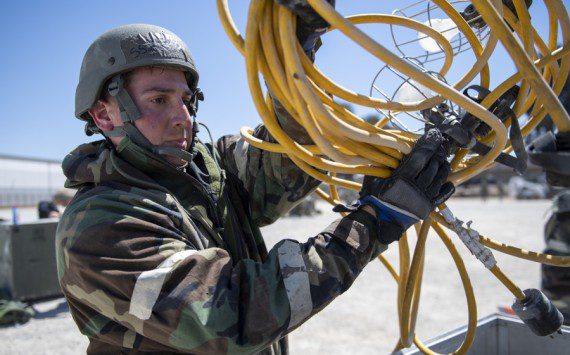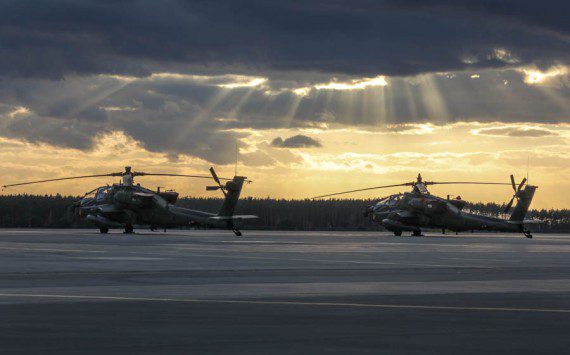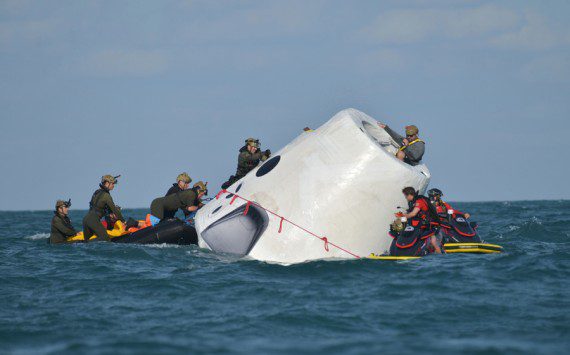Boeing announced Nov. 6 that it is protesting a massive Air Force contract, worth up to $60 billion, to build the Long Range Strike Bomber.
Boeing, which had teamed up with Lockheed Martin, lost out to Northrop Grumman. The selection process was “fundamentally flawed,” Boeing said in a statement.
The contract to build the bomber, a new generation of aircraft capable of carrying nuclear weapons and designed to reach deep into enemy territory, is likely to be one of the Pentagon’s most significant awards over the next decade. In announcing the contract late last month, Defense Secretary Ashton Carter said the program represents a “technological leap” that will allow the United States to “remain dominant.”
The companies were competing to build 100 of the planes, which would enter service in the 2020s.
“Although it is every competitor’s right to file a protest, the Air Force is confident that the source selection team followed a deliberate, disciplined and impartial process to determine the best value for the warfighter and taxpayer,” Air Force spokesman Robert Leese said in a statement.
The stakes were so high that Northrop ran an advertisement during the Super Bowl in some markets, touting its aerospace legacy. Winning the contract ensures the Falls Church, Va. -based company will retain a place among prime contractors for major military jet programs. By contrast, for Boeing, which already makes the F/A-18 Hornet, and Bethesda-based Lockheed Martin, the manufacturer of the F-35 Joint Strike Fighter, a win would have further solidified their status atop the military aerospace chain.
“This should surprise no one, and we would have expected Northrop Grumman to file a protest had it lost the contract,” defense analyst Byron Callan wrote in a note Nov. 6.
There is about a 15 percent probability that the Government Accountability Office “would overturn the program award and reopen the competition,” Callan said. That is relatively high, Callan added, but “we absolutely believe that the Air Force assumed there would have been a protest” of the contract.
Others, though, noted that Boeing had been previously successful in protesting the award to build the Air Force aerial tanker. Loren Thompson, a defense consultant who works closely with Lockheed, said that the Boeing-Lockheed team have a good case to argue.
If Northrop keeps the contract, the Air Force “will pay more for the bomber than it needed to, and there are huge risks associated with the outcome that nearly guarantee the pane will not be delivered on time,” he wrote in a Forbes column Nov. 6.
In its statement, Boeing faulted the government’s cost evaluation and risk evaluation. “That flawed evaluation led to the selection of Northrop Grumman over the industry-leading team of Boeing and Lockheed Martin,” the statement said.
Northrop is “disappointed that its former LRS-B competitors have decided to disrupt a program that is so vital to national security,” company spokesman Randy Belote said in a statement.
“Northrop Grumman offered an approach that is inherently more affordable and based on demonstrated performance and capabilities. Our record stands in contrast to that of other manufacturers’ large aircraft programs of the last decade.”
The GAO has 100 days to rule on the protest.
Quicklinks











